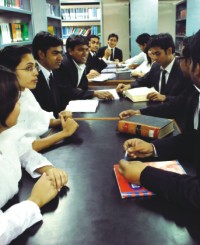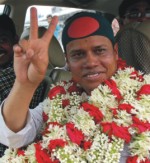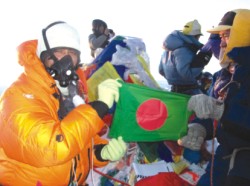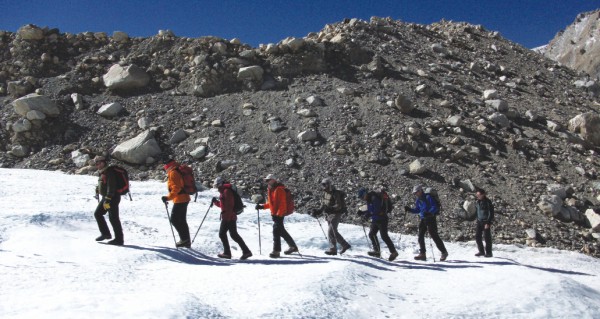| Home - Back Issues - The Team - Contact Us |
 |
| Volume 10 |Issue 21 | June 03, 2011 | |
|
|
Letters Hospital Pharmacy in Bangladesh The development of hospital pharmacies is an opportunity for pharmacy professionals to become registered pharmacists in hospitals. A hospital pharmacist plays an important role from preparing a prescription to writing up a report on the patient's medical history after the medical doctor has diagnosed the disease. Hospital pharmacists are experts in the therapeutic use of medication. They routinely provide medication therapy, evaluation and recommendations to health care professionals regarding medicines to patients. The history of hospital pharmacy dates back to about 250 years, but in Bangladesh the hospital pharmacy practice is yet to be established. Every hospital in Bangladesh has retail pharmacies, which sell over the counter (OTC) drugs and prescribe medication to the public, but these are not the actual hospital pharmacies. In the year 2008, BPS organised a seminar on “Development of Hospital Pharmacy in Bangladesh.” The seminar focused on the current situation and future action plan for the introduction and development of hospital pharmacy and its educational progress in Bangladesh. But still no initiative has been taken to develop hospital pharmacy in this country. Hospital pharmacy is very important for a country like Bangladesh where the doctor patient ratio is unequal. Some private hospitals are trying to start this practice, but few hospitals are seeking to recruit hospital pharmacists. Md Fokhrul Islam Monju Tuition and Other Fees of Private Universities
Almost two decades have passed since private universities were introduced as supplements to public universities in Bangladesh. It was a positive move to enhance the scope for higher education in the country. Indeed private universities have extended the opportunity to the affluent. The tuition and other fees have been fixed in almost all the private universities at such a high rate that those students from lower as well as middle class families cannot afford to enroll in these institutions. A few middle class people, who are desperate to obtain higher education, after not getting a chance in public universities, have to sell their property or valuables to pay the exorbitant tuition fees. Although the owners of the private universities are rich, they are utilising the varsities as a source of earning. Even the private universities, which were established by non-profit making NGOs, are also taking high tuition fees. If a survey is conducted taking into consideration the social strata of the students enrolled in private universities, the proof of above mentioned factors will be revealed. The Honourable President of Bangladesh, in several convocations of private universities, asked the authorities concerned to reduce the fees but it seems that his requests went in vain. As a result, the very goal of introducing private universities in Bangladesh has not yet been achieved. The situation should be changed. The admission, tuition and other fees of the universities must be reduced so that apart from rich students, poor, meritorious students can also obtain degrees from them. Md Ashraf Hossain In Praise of Bangladeshi Heroes
Last Monday (May 23), Civil Aviation and Tourism minister Ghulam Muhammed Quader, MP, officially inaugurated the Adventure Festival 2011 in the presence of Musa Ibrahim (who climbed the Mount Everest), Sir Frank Peters, and other dignitaries at the DSU. My attention was grabbed by the speech given by Sir Frank Peters who, in a way, chided the nation for not recognising its modern-day heroes. He said those who gave their lives and those who didn't, but fought valiantly for the cause, in the War of Independence and for our mother language, all deserved the hero status, due recognition, and eternal appreciation. He went on to say that despite the huge population of Bangladesh it had very few instantly recognisable modern-day heroes of any description and cited a few names. He declared Nobel laureate Professor Muhammad Yunus as the most well-known Bangladeshi throughout the world, Sir Fazle Abid as an 'exceptional businessman, humanitarian and gentleman' and also an internationally-known figure. We labelled the Bangladesh Cricket team yo-yo heroes: “they are heroes if they win and villains if they don't”, which brought laughter from the gathering.
He said a national hero-in-the-making is Korvi Rakshand who founded the Jaago Foundation for the work he has done for disadvantaged children and declared Valerie Taylor, “the Mother Teresa of Bangladesh” for her tremendous work with disabled persons in Bangladesh. He said there are heroes here, but mostly without official recognition, and he would like to see that change. “Heroes inspire and motivate other people into becoming heroes and seizing control of their own lives. Generally, they come cheap as well. They usually pay all the expenses needed for achieving their goals out of their own pockets , but those whom they ask for help, usually cannot see or touch the vat of hot-burning desire, their staunch self-belief, and powerful motivation to succeed, as they do, which is a pity.” When he listed the modern-day heroes, he humbly forgot to include his own name for his crusade against corporal punishment in schools.
Nardia Zahidi Submission Guideline: Letters to the Editor, Star Diary and Write to Mita, with the writer's name and address, should be within 200 words. All articles should be within 1,200 words. A cover letter is not necessary, but every write-up should include the writer's name, phone number and email address (if any). While The Star welcomes unsolicited articles and photographs, it cannot accept the responsibility of their loss or damage. The Star does not return unsolicited articles and photos. Response time for unsolicited write-ups ranges from three weeks to two months. All articles submitted are subject to editing for reasons of space and clarity.
Copyright (R) thedailystar.net 2011 |



